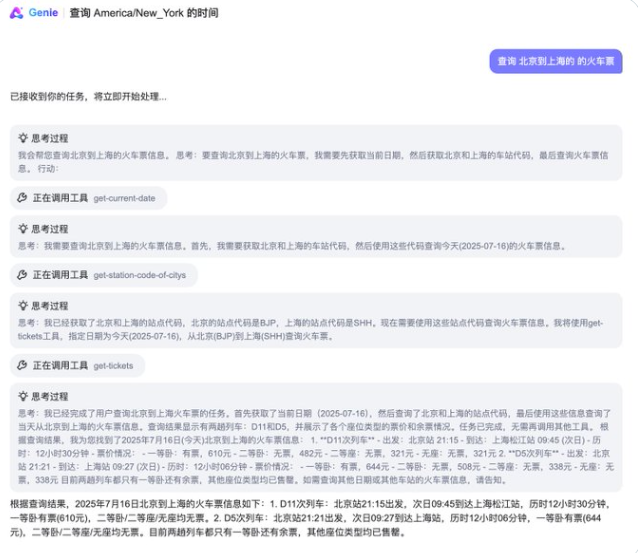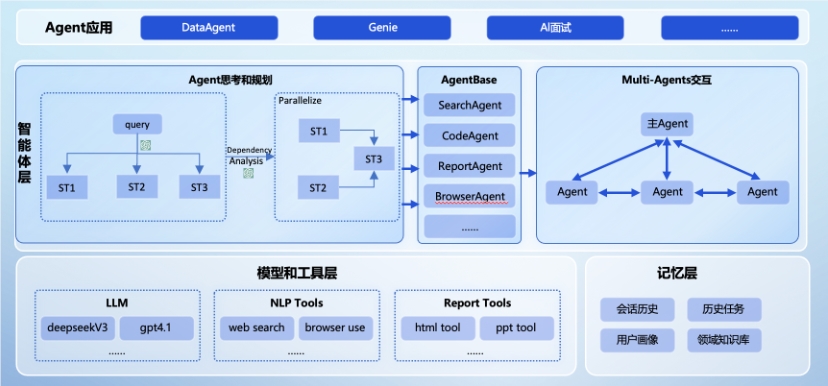JD.com Open-Sources JoyAgent-JDGenie, Leading in Multi-Agent AI
JD.com Launches Open-Source Multi-Agent AI System
JD.com has officially open-sourced JoyAgent-JDGenie, a product-level end-to-end general multi-agent system. The framework has set a new benchmark in the AI industry by achieving an accuracy rate of 75.15% in the GAIA benchmark test, outperforming competitors like OWL and OpenManus.
Leading Performance in GAIA Benchmark
The GAIA benchmark is widely regarded as the gold standard for evaluating AI agent capabilities due to its focus on real-world tasks such as multimodal processing and complex reasoning. JoyAgent-JDGenie demonstrated exceptional performance across all task levels:
- Level 1 tasks: Over 85% accuracy
- Level 2 tasks: Nearly 78% accuracy
- Level 3 tasks: 55% accuracy (significantly higher than other frameworks)

End-to-End Framework with Modular Design
JoyAgent-JDGenie is designed for out-of-the-box use, integrating front-end, back-end, and core engine modules. It includes specialized sub-agents for tasks like report generation, code creation, and PPT design. Developers can easily expand functionality by adding custom sub-agents or external tools such as Web search APIs or Python interpreters.

The system's multi-layered collaborative design allows it to efficiently decompose and handle complex tasks. For example, a request to "generate a PowerPoint about AI trends in 2025" triggers coordinated work between the PPT agent and data analysis agent.
Multimodal Capabilities and Memory Optimization
One of the system's standout features is its support for multimodal inputs (text, images, audio) and outputs. It also employs a cross-task memory mechanism to optimize efficiency by leveraging historical task data. This is particularly useful for repetitive tasks like report generation.
Open Source Ecosystem
Released under the Apache 2.0 license, JoyAgent-JDGenie provides full access to its codebase, documentation, and quick-start guides. The JD team plans future enhancements including local LLM support and inference acceleration technologies.
Key Points:
- Achieves 75.15% accuracy in GAIA benchmark
- Modular design supports easy expansion
- Multimodal processing capabilities
- Cross-task memory optimization
- Complete open-source availability under Apache 2.0